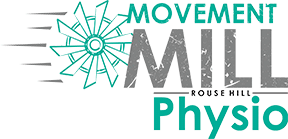1. Own your injury
It’s your injury. Physical pain is forgotten much quicker than emotional pain. We all remember that first romance that was a whirl wind of love, passion and pain. But can you remember the first time you cut yourself?
Your injury is yours. No one else can have it. No one else can take it from you. Hence understanding what your injury is, the prognosis and what you can do about it is vitally important for your recovery.
Knowing what you can do to help your recovery time comes from understanding the injury and accepting that you are injured.
2. Don’t blame yourself for your injury
There are many people out there already doing that for you. Sure, you may have had one too many and fallen over the gutter, or you have carried the injury for the last 20 years and now that you can’t walk upstairs think its time to get it looked at.
That is the past. The injury has happened. You can’t change it, so stop blaming yourself and let’s focus on the here and now, postured for the future and recovery. No point musing on the past that you can’t change. Better to focus on the future you can influence.
Take responsibility for your future and your recovery. Own your journey, don’t let the injury own you.
3. Be realistic.
The body takes time to heal. Depending on how recent and severe your injury is, it may take up to 12 weeks to address the injury and the cause.
That’s a commitment from you. It’s your body and you only get one, so its your choice. Accept that you may continue to injure yourself or.. finally get it looked at, be committed to your treatment and potentially remove the chance of having that injury occur again.
Gain your life back. Run around with the kids again. Get back into that sport. Stop saying you used to do it and start saying I will do it. I will get back to it.
4. The way you view or frame your injury will affect the healing process.
Thinking negatively about your injury may increase the healing time. Thoughts like ‘I will never get better’, ‘I will never be able to do something again’, ‘this is just how life will be now’, will all slow down the healing process. Hormones are released in the body which will negatively affect your healing process.
Thoughts of ‘well this injury is slowing me down now, but won’t in the future’ or ‘I will get better it will just take time’ can have a positive effect on your recovery. View your injury as a learning curve and try to find the good in the injury.
5. Acknowledge your emotions.
Feelings of depression, anxiety, fear, anger and frustration are all normal within the injury process. Angry that the injury has happened again, sad that you have missed the netball finals, guilty that you can’t play with the kids. All normal.
But staying in these feelings can hinder your recovery. Learn to acknowledge the emotions. Learning how to handle a setback or relapse can be a great buffer in your recovery. There will be up days and down days. You need to be mentally prepared for this. But don’t stay in the fear.
Don’t let the negative emotions shape your recovery.
6. Have a goal.
Knowing where you want to head or get back to will help you with the recovery. It will provide stepping stones on the recovery journey and can show you where you are improving along the recovery road.
Being able to run again, play with the kids or simply be able to wash your hair or do your bra up. All practical good goals. Even things that you thought you could never get back to cause of the injury can be a great guiding light.
Ben Gildersleeve, Physiotherapist


